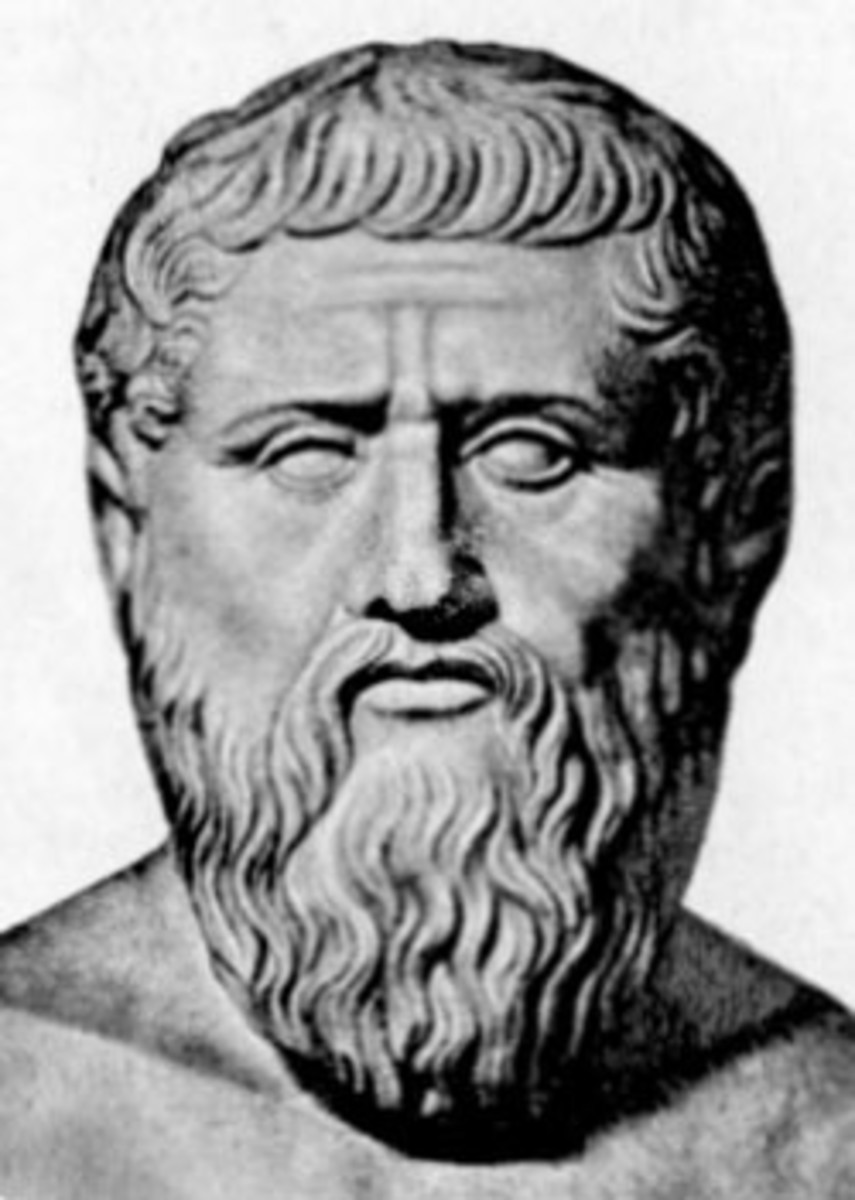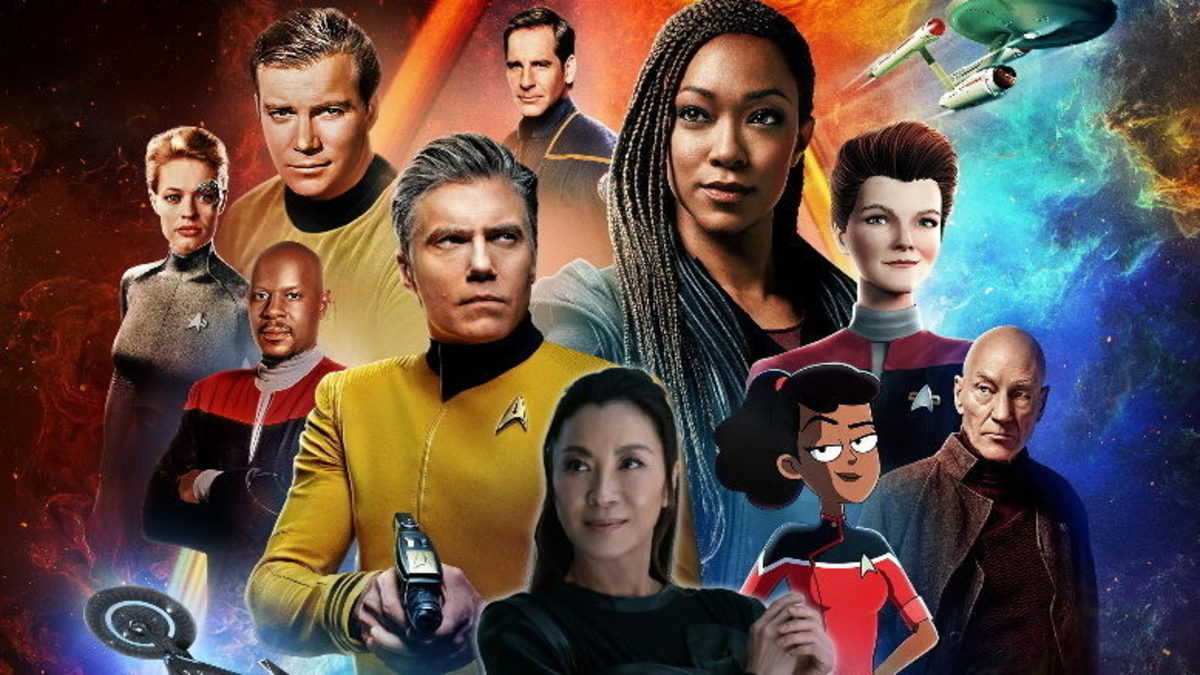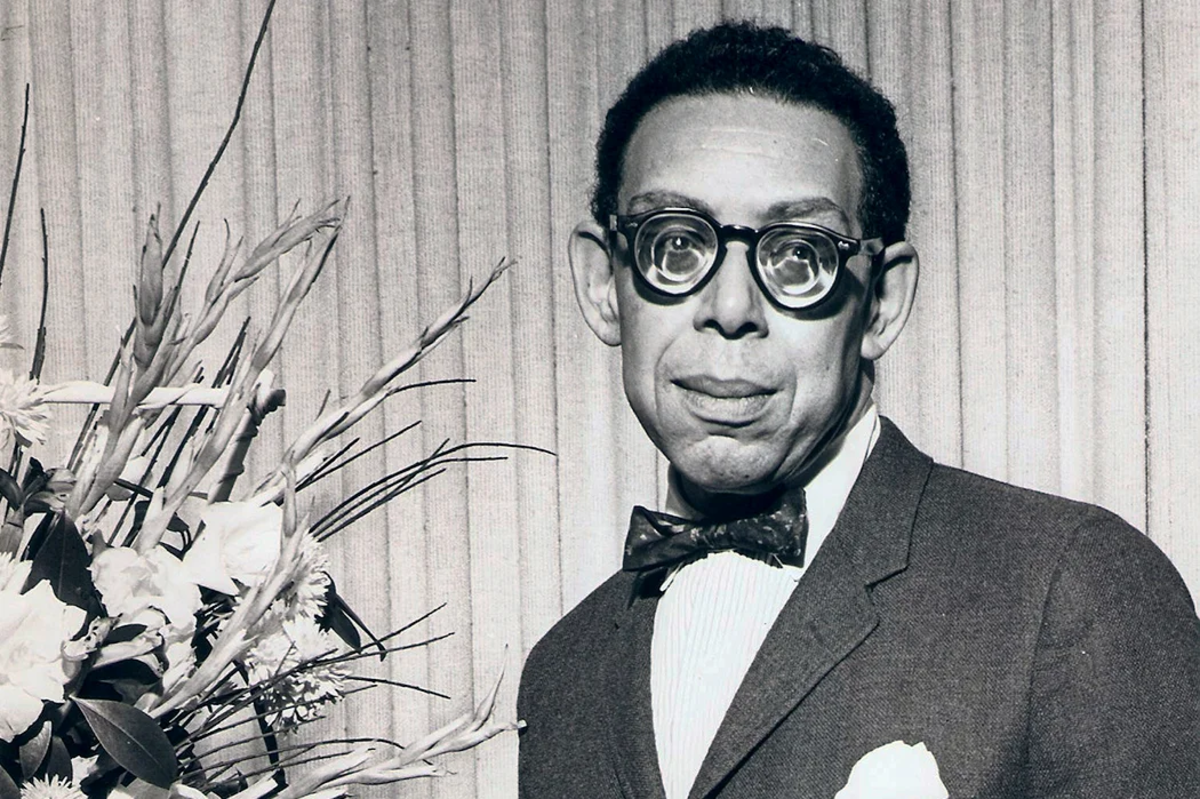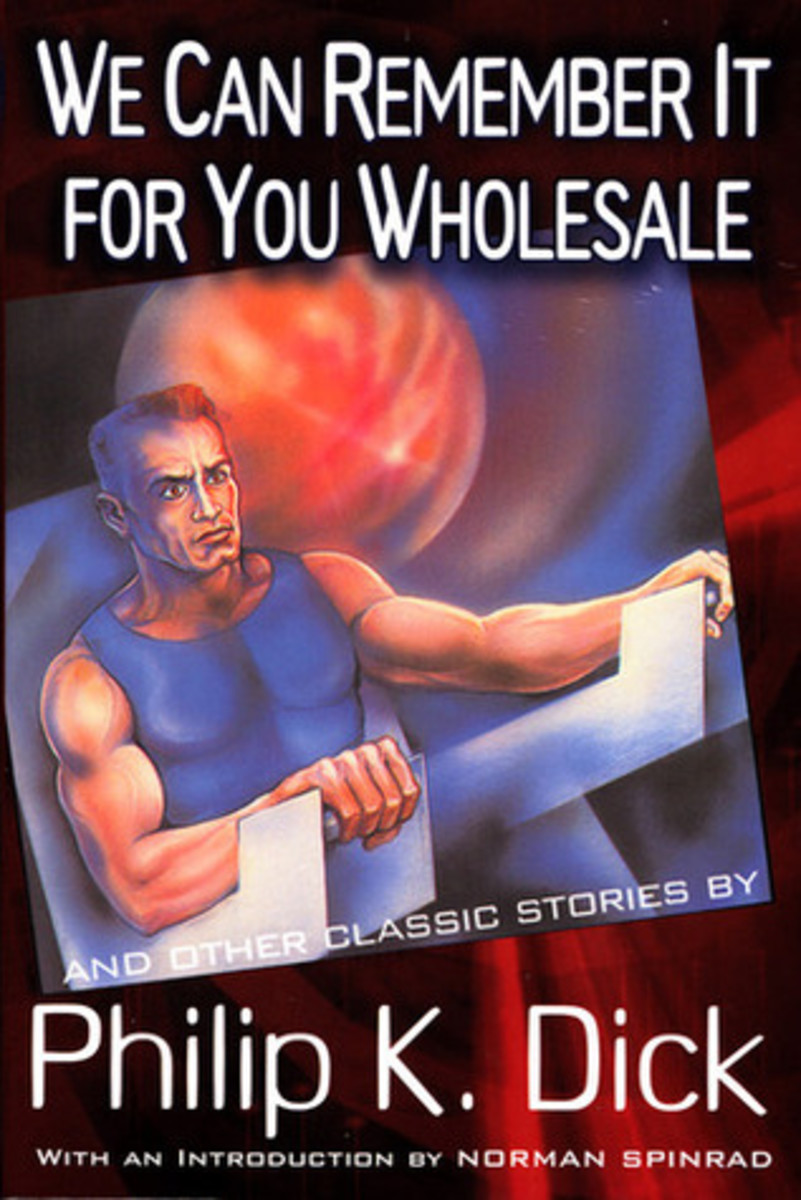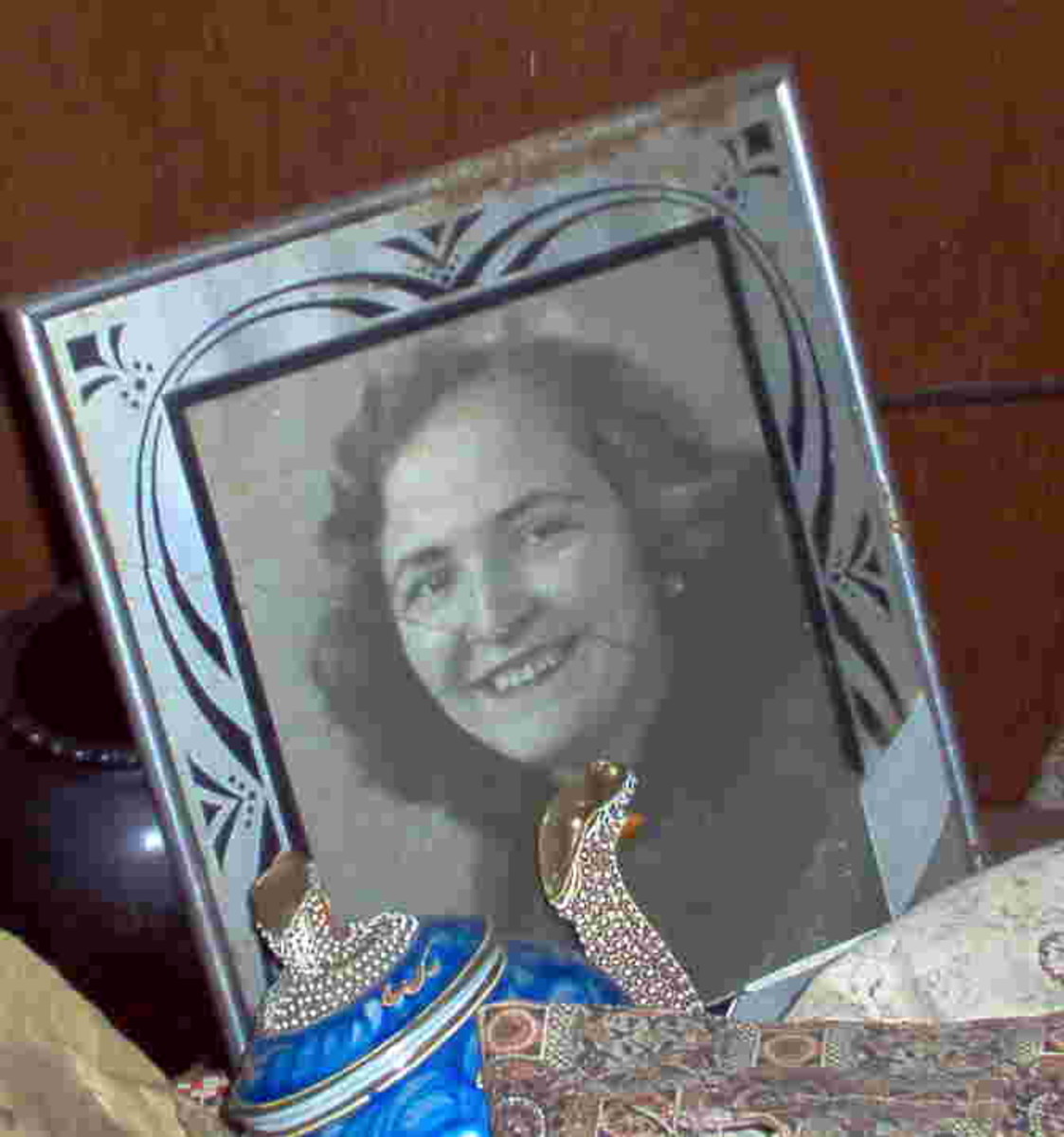- HubPages»
- Books, Literature, and Writing»
- Books & Novels»
- Fiction»
- Science Fiction & Fantasy Books
Star Trek: Provenance of Shadows: Review, Themes, Analysis and Thoughts on the Alternate Timeline
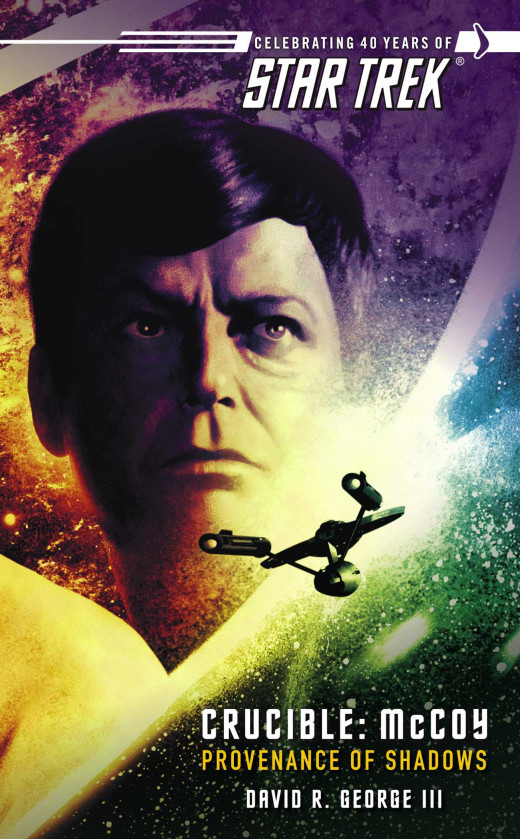
I frequently find that books I enjoy have a low-presence in online discussion groups for various reasons. Many places do exist but they usually fade out fast and don’t generate deeper debate on the novel in question. Instead, many reviewers are out there that don’t always analyze and investigate the aspects I notice. It is my intention to act like a review and an analysis of key portions of Provenance of Shadows in the hopes of inspiring new thoughts into this 40th anniversary celebration of Star Trek and perhaps give you new insight into this novel. Will it wander around? Probably. It will also contain portions I loved and hated as I try to weave together some coherent thoughts on Provenance of Shadows. Plus this is a McCoy story, so portions of him that are relevant in the other Crucible Trilogy novels will be brought here.
Initial Musings
We begin with McCoy’s alteration to the timeline: saving Edith Keeler, and we get to go inside her mind at that moment. Why did Edith walk that street in such a trance? Even she wasn’t sure after McCoy took her inside the mission to recover. Were the rivers of time forcing her to some destiny? I have a theory on this, but more on this later. It requires some more puzzle pieces but I promise it will be worth it.
After saving Edith, McCoy works more and more with her at the mission and is impressed with Edith’s work and vision for the future. When he asks her why, she quotes John Donne: ‘”No man is an island, entire of itself; every man is a piece of the continent, a part of the main.”’ McCoy finishes the quote, saying, ‘”Any man’s death diminishes me because I am involved in mankind.”’ And then….silence from the two of them. It was as if they knew the severity of how those words impacted their situation, despite the impossibility of that. Edith’s life did greatly impact mankind, exemplifying that quote and really the nature of how time impacts all we see. Amazingly (and for sure, tragically) we can say that Edith’s death greatly benefitted mankind, for it prevented her pacifist movement from weakening the US and thus allowing Nazi Germany to win the war, despite what the quote implies. We know the meaning it tries to convey but in this twisted example it just isn’t true.
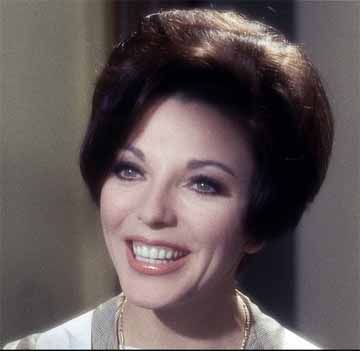
Thoughts on Time
But later on, Edith and McCoy begin to talk about Gandhi and his violation of the Salt Law. Here we had a man who took peaceful, nonviolent actions to enact change. He made a difference in the world, something that Edith desires to do and ultimately does – just not how she would have hoped. She makes it clear through her actions that helping others is something she must do because she can, yet the tragic irony of her being a destroyer of this world makes one wonder: how can we distinguish ourselves from her? What was the difference between Gandhi and Edith? She even claimed, “I don’t need to change the world,” yet does just like Gandhi. Perhaps time just doesn’t care, or it’s something inherent in the physics of probability. It could just be that time is unforgiving that way.
And does it encourage events to have parallels across the boundaries of different timelines? Edith gives a nearly identical speech to McCoy about the future she gave Kirk and Spock, and it causes McCoy to be wary of altering the future, lest he cause something that will impact his ability to get home. He looks up at the sky then, and a similar pan up happens like it did to the stranded crew members in “The City on the Edge of Forever.”
Unfortunately, McCoy has already done that and won’t realize it for some time. It is a tall order for anyone to be placed in a situation where you are not familiar with your surroundings and must survive without interacting with anyone. And McCoy ends up doing it on a daily basis by helping at the mission and interacting with Edith. Such moments may seem like they would be inconsequential in the grand river of time, as Spock postulates while trapped in 1930, but how can anyone know that one action is more significant to another in the grand flow of time? No one can tell, and that theme is explored in The Fire and the Rose.
But for someone who has been placed in such a compromising position, McCoy’s analysis of temporal mechanics is a great launching point for anyone who may find themselves trapped in the past and having questions about their situation, and what to possibly do. For example, if time is as fluid as we think it is, he ponders, then where is Kirk? After all, he has several time travel techniques at hand such as the cold engine startup from Psi 2000 or the slingshot around a massive star, so getting to the past isn’t a problem. On top of that, McCoy being in past has already happened in the future so a rescue party should be able to get to him in relative ease, knowing the time Bones is in. But this causes him to wonder if Kirk even knows Bones is in the past. Remember, the good doctor was suffering a cordrazone overdose at the time and so has incomplete to no memory of how he got there. Could it be more about no knowing when as much as where? After all, McCoy is in a large city on a large world, an incredible needle in a haystack scenario.
So…how does one go about contacting the future? Passively, lest you cause a disruption that alters the flow of time upstream. This means that hospitals and police stations are out, for those involve heavy personal interactions and may hinder his ability to escape unnoticed when the time comes. Instead, McCoy arrives at a 20th century solution: classified ads! It is actually a great idea, for how often do people examine classifieds? And even when they do, it’s with a specific item in mind, and not someone looking for an individual that doesn’t exist yet. Bones is careful not to alter timeline with the text of his ads, and by the time he has an international presence with them, he had spent 6 months in the past.
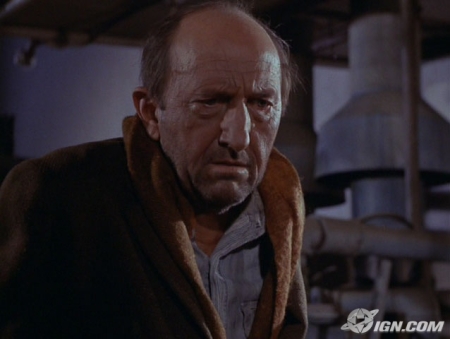
Forever Trapped
On his 1 year anniversary in the past (and meeting with Edith), Bones get a surprise celebration from her. And boy can she tell he isn’t happy about it. She is surprised by his reaction yet understands it. She knows he keeps a distance from everyone (Ms. Keller instead of Edith) and wishes he would just communicate (of course him keeping a distance is what McCoy does best as the original timeline demonstrates). For McCoy, this moment sparks a desperate rationalization for why he is still trapped in the past, holding some quirk in temporal mechanics to blame. But it is also the first step in his acceptance of being trapped, for Edith points out how she can see his unhappiness and so he decides to get an apartment and no longer stay at the mission.
As New Years Eve of 1931 approached, McCoy was now certain he will - or has – altered the future. And if that action is yet to come, would suicide be the best option? Could Captain Kirk swoop in and save Bones before he takes his life? It is a crazy notion and Bones fully admits it, acknowledging he never contemplated suicide even with his marriage fallout or even with his father troubles.
But once the ball dropped and firecrackers went off, Bones realizes he has changed the timeline, but in a rather creative way on DRGIII’s part (and incorrect on Bones’): the phasered bum. This moment in the original “The City on the Edge of Forever” troubled me for years because it seemed…pointless, and maybe that was the original point. That someone from the past found such destruction and was destroyed, but ultimately did not alter history. Or did he? Consider this: what if that bum was supposed to be at the mission the day Edith died. Maybe he kept her late or somehow altered her plan to see the movie that she got struck by the truck but with Bones eliminating the fellow, Edith still felt compelled to go back because the flow of time originally had her going there before. I admit that it is a stretch but it kinda fits nicely and gives the situation a much deeper and troubling notion. Now, it wouldn’t be the case of Kirk and Spock stopping the change but making another alteration, something that would deeply trouble Spock in The Fire and the Rose had he known and would have driven Kirk to even further isolation in The Star to Every Wandering.
Regardless, McCoy thinks this is the alteration that has changed the future and prevented his rescue. McCoy enters a deep depression as he tried to figure out what to do, and Edith recommends he leaves the mission. For Bones, it makes sense because he cannot be rescued and he isn’t happy in the city. Edith sees this also and knows no matter where Bones goes he will do good. After some questioning, McCoy decides to aim for Atlanta and go from there but not before thanking Edith for her help and friendship. She doesn’t want to lose such a great guy but knows New Year’s Eve was a turning point for him, with a further and further retreat from reality happening day by day. She recognizes that she possibly saved his life a second time, and for McCoy it was a new chance. Knowing that the timeline was already changed freed him to move on and attempt to do as much good for this timeline as was humanly possible. As we will see, it also helped him overcome personal demons.
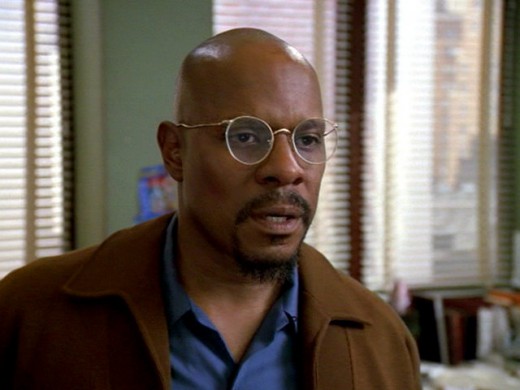
Hayden
Bones makes his way to Hayden, North Carolina where he meets several people that will be instrumental in his life in the past. Some trust him like Phil and Lynn while others are skeptical like Dr. Lyles. But nothing would challenge McCoy’s perception of Hayden quite like Benny Russell.
The introduction of Benny Russel definitely raised many questions in my mind. He was a projection of Sisko in the realm of the Prophets or the Pah-Wraiths, but this is now problematic. This novel implies that he was a flesh and blood individual, so how does that impact Deep Space Nine? I am not sure, but maybe instead it means the alternate timeline portion is also a Prophet/Pah-Wraith projection. But why they would do that is an unknown and seems to raises more questions than answers. And if Benny was a real person, then he would have tried walking through Hayden regardless of McCoy and would have been killed, never becoming the writer we see in “Far Beyond the Stars.” But he isn’t real, right? The book raises this dilemma, and I am okay with it because of the jumping off points it gives us.
Regardless, it allowed us a great conflict for McCoy. He has to deal with the racism of the South towards African Americans that helped build the Civil Rights Movement to a fever pitch. He knows some in Hayden were raised no better and so cannot see how their actions are wrong, and McCoy now must decide how he will judge these people he was recently calling friend, especially Phil. And after proving people in town lied about Benny, McCoy emphasizes how Benny is a good man to which the sheriff responds with a wish that everyone in Hayden could be.
The War That Never Ends
December 7, 1941 comes and goes, and no Pearl Harbor attack happens. After seeing Edith will be in town (from the same paper Spock reads in “The City on the Edge of Forever”), McCoy wants to contact her in a desperate attempt to get her to no longer advocate for peace to try and get history back on track Wanted to stress that peace is the answer, just not right now. He wants to know from Edith why Americans matter more than the other people around the world. By staying out of the war, their lives are put at risk. McCoy wants her to understand that all lives matter, even the enemy. This preciousness of lives is a running theme of Provenance of Shadows, with so many people being important. Edith, Benny, the people of Hayden, the bum from the alleyway, it doesn’t matter. Everyone in connected and a small change to one person affects the whole, something that Star Trek addresses time after time.
After the US enters the war in 1944, Phil enlists, but McCoy doesn’t. Why? Does it have to do where best difference can be made? McCoy makes it clear that Phil wanted him to stay and protect Lynn, but was that to also protect Bones? Phil knew that Bones was different and probably recognized the good doctor wouldn’t survive the war. Ultimately, Phil doesn’t make it. Maybe McCoy feels guilt over it because he is partially to blame?
Later, Lynn admits she was wrong about Benny. This admission is huge because McCoy introduced…a change. But one that he considers to be a net positive, unlike is net negative when he saves Edith. After the loss of Phil, love between Lynn and Bones shows through. He admires her ability to survive despite so many losses, but love? He feels his track record speaks for itself. Wouldn’t work, he fears. But Lynn admits her love to him and knows he does too but cannot understand why he won’t go for it.
The war progresses well pass its 1945 ending from our timeline. During a fake ceasefire, Germany drops nukes along many East Coast cities. While Lynn was on a drive to Atlanta, it was obliterated and McCoy is sure he lost her. But she made it! She wasn’t in the city at that time because she decided not to see a movie there, because Bones wasn’t there. He indirectly saved her life from something he was indirectly responsible for.
Not too long after this near loss, McCoy proposes to her and she accepts, but wants to be married out of love and not out of concern for loss. That opens the gates for why McCoy has trouble with emotional connections. By losing his mother at birth and his father when he euthanized him, McCoy feels he killed his parents, thus he is the assassin. The abandonment of his parents hurts him. But Lynn helps McCoy realize it was they that inadvertently abandoned him and that he need not push people away in order to prevent anyone else abandoning him. Lynn saves McCoy from a life of further loneliness, a lifestyle he lived in the original timeline and was forced to new extremes in this alternate timeline.
And so they are married, but it is to be tragically short-lived. On September 8, 1955, on the 1st anniversary of his marriage to Lynn, a Nazi pilot on a failed raid of the town crashes and as McCoy gives him aid, stabs McCoy though the heart and kills him. The 8th of September is familiar to many Star Trek fans: the birthday of Star Trek.
Final Thought
The ultimate irony of the alternate time is that it is basically the Sarpeidon scenario lived out – to an extent. In “All Our Yesterdays,” the good people of Sarpeidon know their sun will go nova and so they use their tech to send people into time and live out their lives in history’s shadow. McCoy did his against his will but came to find that he had a great life. From a terrible accident, he was able to make the lives of those he was never meant to meet better – and worse, for he prolonged the war inadvertently. This novel is a cautionary tale of the unforeseen consequences our actions can have but that we need to persevere and march along if we hope to make a difference for the better.
© 2017 Leonard Kelley

